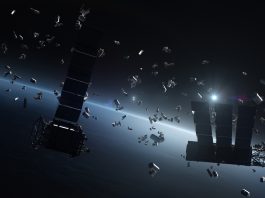CU Aerospace, LLC (CUA), a leading force in small satellite propulsion, has secured a prestigious $3.29m contract from the Defense Advanced Research Projects Agency (DARPA).
This funding is aimed at the development of an innovative air-propellant pulsed magnetoplasmadynamic (MPD) space thruster, which could significantly enhance very low Earth orbit (VLEO) missions at altitudes below 400 km.
The space thruster could open new frontiers for satellite technology, offering improved efficiency, longer operational lifetimes, and greater mission versatility.
If CU Aerospace is selected for a Phase 2 flight mission, this initial contract could be expanded to include the production of flight hardware and mission support, bringing this pioneering technology closer to real-world application.
Game-changing space thruster for VLEO missions
The MPD thruster is designed to generate high current by utilising solar power, accelerating atmospheric air to create propulsion.
This system delivers improved performance, extended operational lifetimes, and greater overall efficiency for VLEO spacecraft.
Moreover, this breakthrough technology could also pave the way for future advancements in deep space exploration, where higher-power versions of the space thruster may be utilised for long-duration missions.

Dr David Carroll, President of CU Aerospace, expressed his enthusiasm for the project: “We are honoured to have been selected by DARPA for this important project.
“This contract represents a testament to our team’s expertise and dedication to pushing the boundaries of space technology.
“We are excited to collaborate with DARPA in developing this state-of-the-art propulsion system that will shape the future of low-altitude satellite operations.”
CU Aerospace: Leaders in innovation
Founded in 1998, CU Aerospace has built a reputation for excellence in aerospace engineering, particularly in the niche of space thrusters for small satellites.
With a team of dedicated engineers and researchers, the company continues to push the limits of propulsion technology, contributing to the growing field of space exploration.









